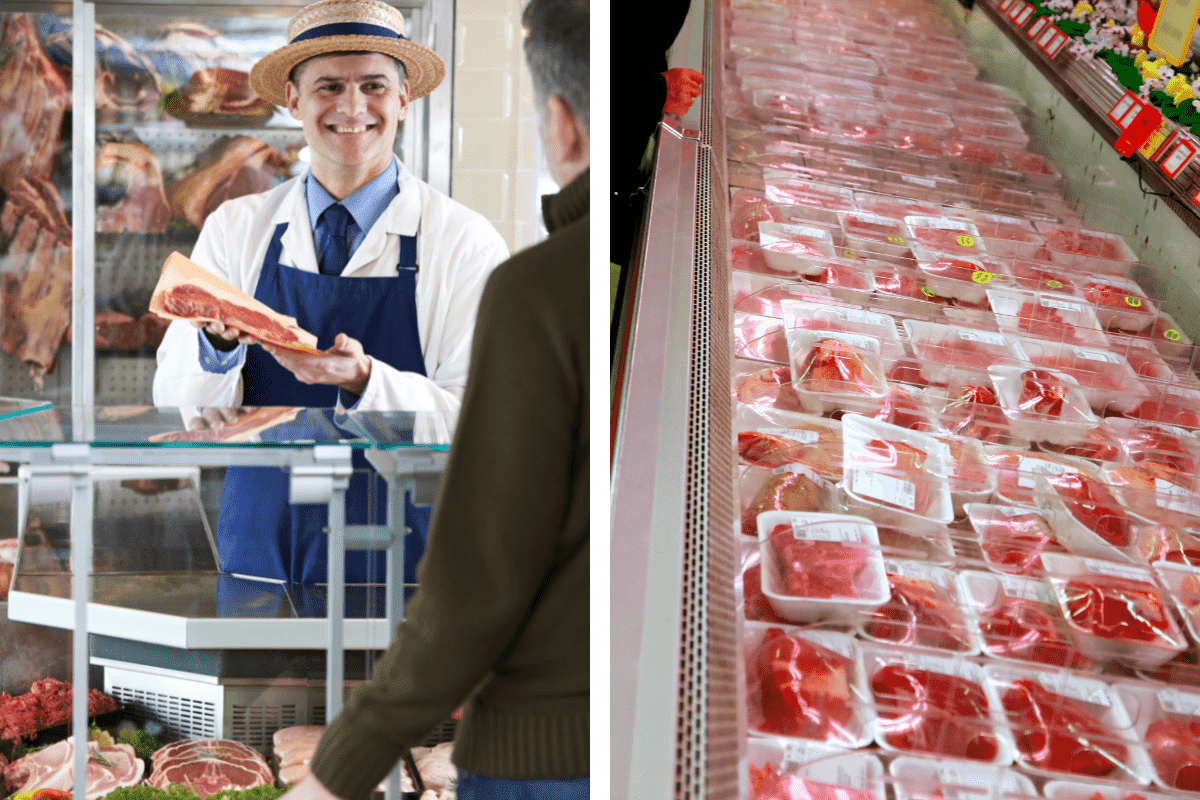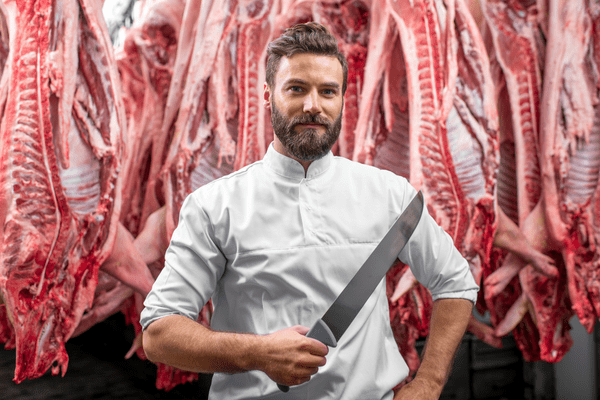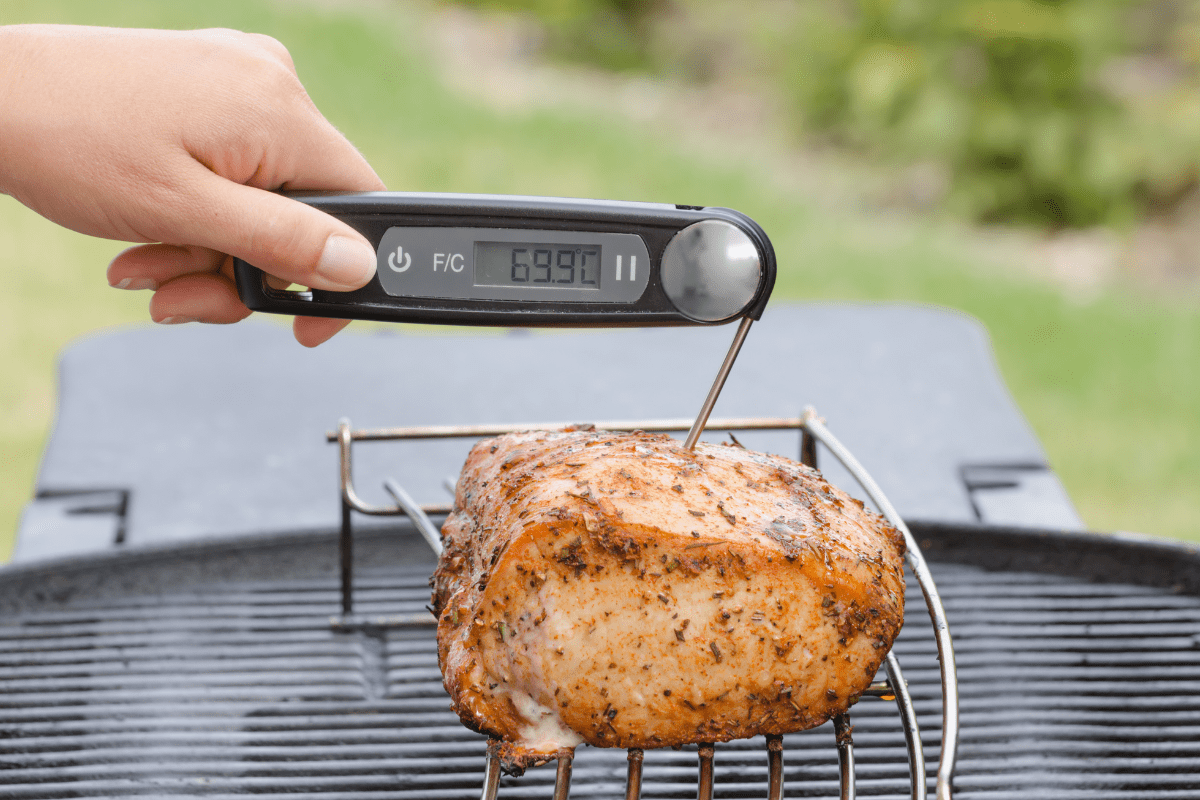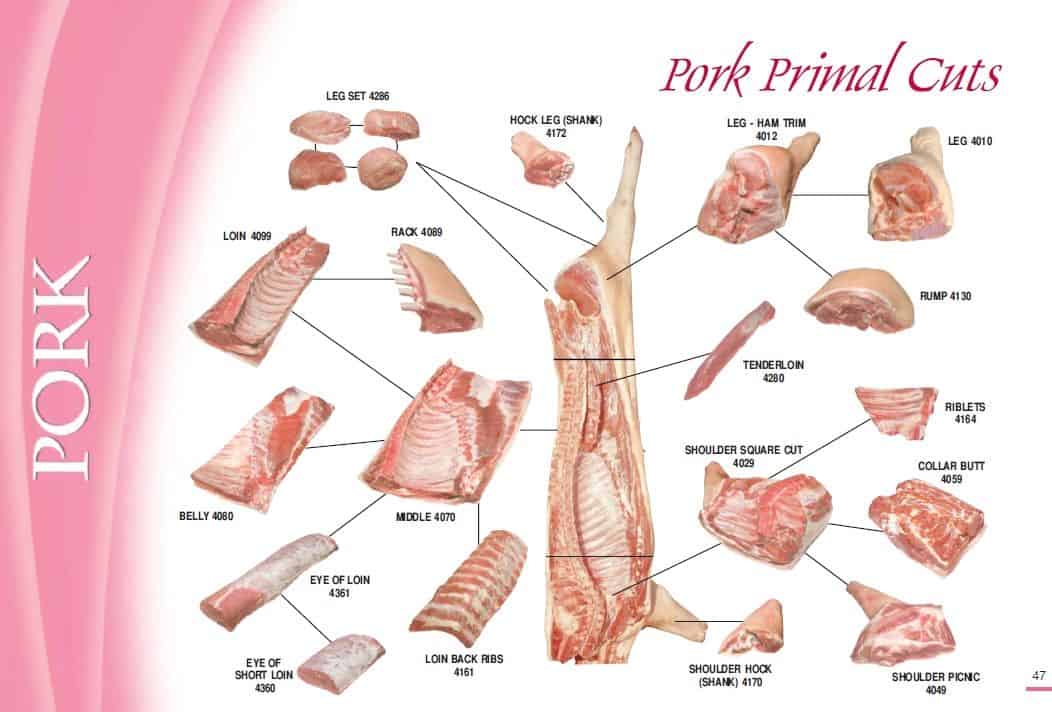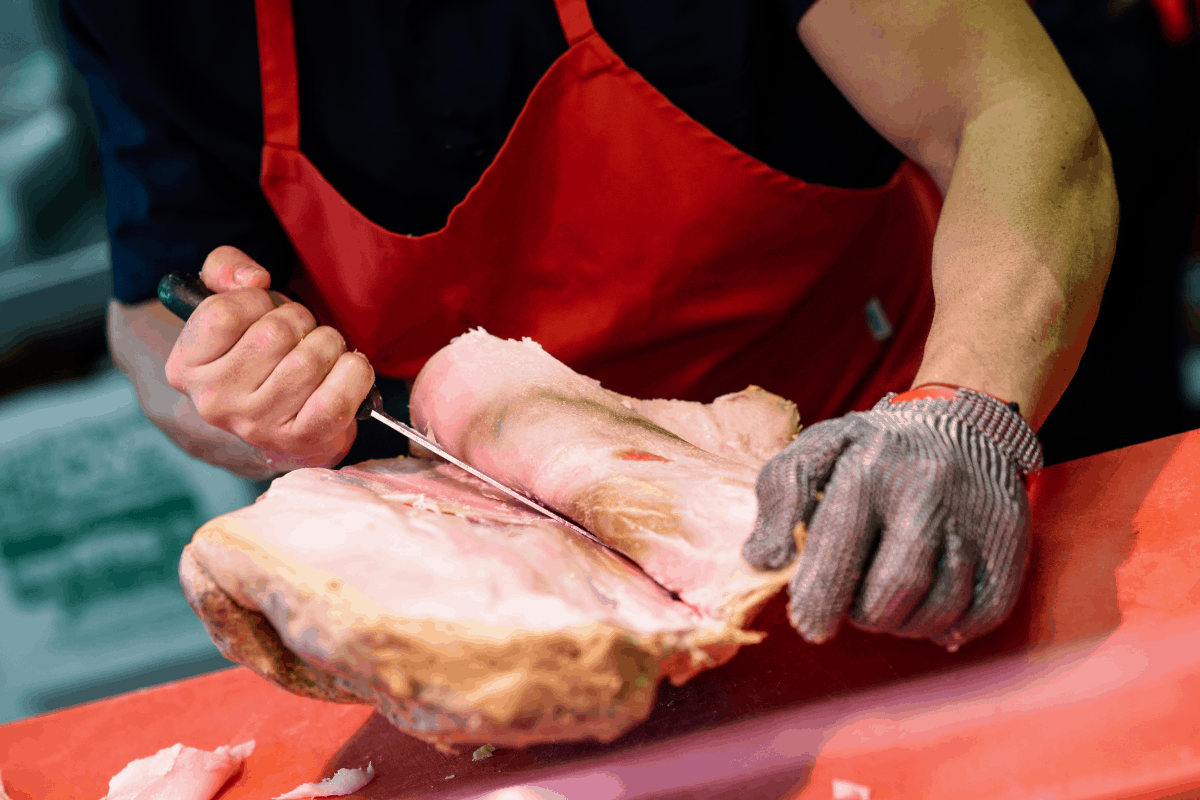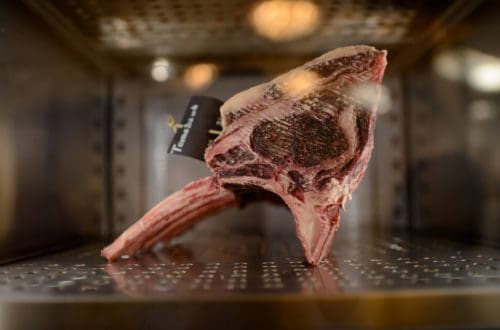When deciding on whether you should buy your meat from an independent butcher, or a supermarket, there are several things you will need to consider that will help you decide. Everyone has different needs and expectations when it comes to buying meat, and once you have decided what is the most important to you, the answer to this question should become clearer.
The main factors to consider when trying to decide, are based on the following:
- Price
- Quality
- Expertise
- Convenience
This article will now look at each of these point in more detail, and explain how they may affect you decision making.

Price of Meat
Probably the most important consideration for many people buying meat, is how much it is going to cost. There is the perception that independent butchers shops are more expensive than the grocery stores, and in many cases, that is correct. For instance a high quality butcher that rears and slaughters their own animals, can rightly charge a premium for their product. However, a general meat market may end up being comparable to a supermarket, once the variables have been taken into account.
For example: Buying ground beef from the grocery store that has 20% fat content, versus buying the more expensive beef from the butcher that only has 8% fat content, you would need to buy less from the butcher, to have the same cooked amount of meat, as you got from the grocery store.
There are many ways that you can benefit from the best of both worlds when buying meat, if you are willing to pay attention to the sales, and shop around. Here are some of the ways that price promotions can help you.
Loss Leader Deals
Supermarkets often have ‘Loss Leader’ promotions, which can represent great value for the customer. Loss leaders are basically items sold at, or below, the cost that the supermarket paid for the meat. They will sell these items cheaply to try and encourage you into the shop, with the hope that you will continue to purchase other items, on which they make more money.
If you can trust yourself to just go into the store to buy these ‘Loss Leader’ bargains, then you can save a lot of money by stocking up, and freezing the items that you know you can use.
In the current economic climate, every retailer is trying hard to get you to spend your money in their business. Therefore, you will also see your independent meat market putting up some great offers too.
The meat market promotions may not be as attractive as the ‘Loss Leader’ deals, but they will represent a significant saving over the normal price charged within the store. Again, if the offers are something you would use, and have freezer space, it’s the perfect time to take advantage of the savings and stock up.
Price Fluctuations
Supermarkets are working to very slim profit margins and so you may find that the price varies from week to week, making it difficult to budget. The supermarkets have ways of hiding the price increases by making pack sizes smaller and keeping the pack price the same.
However, the butcher will usually have a more consistent price base that will allow for fluctuations in the market price. You may see you local butcher only adjust prices every 6 months to a year allowing for more precise budgeting.
Price per Lb/KG
When shopping the for meat in a supermarket, it is important to pay attention to the price per lb/kg of what you are buying. A common practice with packaged meats is to change the name of a product and charge a different price for essentially the same product.
For example: pork loin steaks may be $1.99 per lb, centre cut pork steaks may be $2.29 per lb and Thin cut quick cook pork steaks may be $2.59 per lb. These are all taken from the same cut of pork but given a slightly different name to appeal to different people. Then a premium price is added. In this example, you could have probably bought a boneless pork loin roast for $1.49 per lb and cut it into all of these different cuts listed, and paid up to $1 less per lb, just by cutting it into steaks yourself.
When buying the same meat from the butchers cabinet, you will see the price per lb listed, and then can ask the butcher to cut the steaks just how you want them, at no further price increase.
Price Conclusion
When you are basing your decision to buy meat on price alone, be sure that you are comparing ‘like for like’, and not just going for the cheapest. Supermarkets pay lots of money to advertising and concept companies, to come up with ingenious ways to make something sound more attractive, so that they can charge a premium price without you realising.
Also, checking out the fat content, water content, or additives, is essential when comparing price. A supermarket chicken could look like a bargain, but contain added water, which is included in the weight. The same with ham and bacon products. Once the water evaporates during cooking, the turkey sized chicken you bought could suddenly look more like a game hen!
The meat market prices may appear to be more expensive on the surface, however as you will see from the ‘Quality’ section below, the prices may not be all that different when you compare like for like.
Quality of Meat
Not all things are equal when it comes to buying meat, and depending on the quality, the cheaper meat could end up costing you more in the long run.
It is without doubt that independent meat markets and high class butchers, will always carry better quality meat than you would get from a grocery store. Even the ‘best quality’ meats sold in the supermarket will not likely measure up to the quality provided in the independent store.
Only you can decide how important the ‘quality’ of meat is when deciding where to buy. For some people, having the meat reared and sold close to home is very important, for others, lean over fat is important, and for others, aged meat over fresh is important.
All of these quality traits will affect the price as well as the enjoyment you get from the meat. You need to decide what is important to you, and then adjust your buying and budget accordingly.
Traceability
Traceability is the term given to knowing where the meat came from. Once the meat enters the food chain for human consumption, it must be able to be traced back to it’s origins. ie: the farm where it was born and raised.
‘Farm to Fork’ is a term youmay be familiar with, it essentially means that the seller of the meat can tell you exactly where the meat was reared and how it got to your plate ie: Traceability
Some independent butchers will have farms and rear their own animals to sell in their shops. They will take control of the whole process from birth to selling the meat to you, and will be knowledgeable, and proud of all aspects of the meat they sell. With this type of butcher, you would be able to ask any question you like regarding the meat and they could answer confidently. As you can imagine, this level of quality and service is presented at the higher price range, but if buying locally sourced meat is important to you, then this may be a price worth paying.
Other independent butchers may not rear their own animals, however they will entrust the local abattoir to source quality animals from fairly local farms. Usually, the abattoir will have a selection of farms that they buy from and sell on to quality local establishments. This is a good compromise for those who wish to again buy local, but not to the extreme of knowing exactly which farm the meat came from.
Supermarkets and grocery stores tend to operate on price, and will have big packing houses that will purchase meat from the cheapest source and package to sell in big factories. Although the traceability is still a requirement, the grocery store employees who are displaying the packed meats would not be able to tell you where the meat came from, or how far it has traveled to get to the store. For someone looking for local meat, this is the least attractive option.
Freshness
There can be no denying that the freshness of the meat is going to be better from the butcher than the grocery store. In most cases, you can walk into a butchers and ask for a piece of meat to be cut for you from a much larger piece. Although the meat may have been ‘hanging’ for up to 28 days, the cut of meat you are going to get will still have been cut fresh for you.
In grocery store packaged meats, the product will have been cut and packed in a factory days before. It will have been wrapped in plastic and likely have a blood saver pack under it to collect the escaping liquid. Many people may have handled that piece of meat while they picked over the pieces they considered buying. If the packaging is compromised in any way, then the meat may have open to the elements and started to deteriorate in quality, as well as possibly contaminated by outside factors.

Meat Grade
An independent butcher is dependent on their reputation, and so will want to buy the best quality that they can, within the price point that their customers are willing to pay.
Meat is graded and priced accordingly. In the USA, there is 3 main grades ‘Select, Choice and Prime’.
Prime is the premium grade and is usually sold in the more expensive stores.
Choice is the most popular grade sold in independent butchers, and may be a few cuts available at a ‘premium’ price in the grocery store.
Select is the leaner, tougher grade that is most commonly found in supermarkets, and unlikely to be sold by independent butchers.
Specialty Homemade Products
You are much more likely to encounter a selection of meats that have been prepared ‘in store’ from an independent butcher than a grocery store.
Many independent butchers come from generations of butchers, and have recipes for sausages, pies, bacon etc that have all been handed down over the years.
They will be proud of their own recipe products, and you can be sure they will only use the best ingredients when making them, to ensure a great result.
Although you may find some tasty and unusual products in the grocery store, they will still have been mass produced to be available in all the stores.
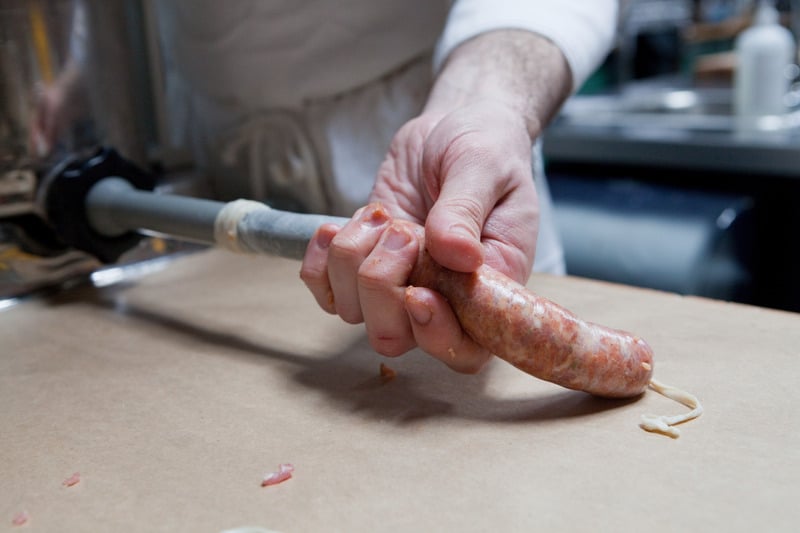
Quality Conclusion
The term ‘You get what you pay for’ is apt where meat buying is concerned. Like we have mentioned, if buying top quality and local is a big factor in your buying decision, then obviously an independent farm shop type producer would be your best option, however it will come at a price. If you are just looking to put meat on the table and as long as it is pallitable and tasty, then grocery store meat may be the way to go. If you would prefer a compromise between both of these, then a local independent butcher will likely have the benefit of locally sourced meat, with a good quality, at an affordable price and the added bonus of a few homemade recipe meats on sale too.
Related Article – The Advantages Of Using A Butcher If You Love Eating Meat!
Expertise of Meat Department
One of the main attractions with purchasing meat from an independent butcher, is the expertise that they bring to the table.
Meat Cut Knowledge
When you purchase your meat from the butcher, not only can they tell you where the meat came from (traceability), they can tell you the best cuts to use for the type of meal you are preparing, as well as valuable preparation and cooking methods.
This has tremendous value in saving you money from buying the wrong cut of meat for the recipe you are looking to prepare. Also, if the butcher does not have the specific cut you are looking for, they will certainly have something that will be close and comparable to what you need.
The grocery stores without meat counters, will sell all of their meat pre-packaged. This means it will have been packaged in a packing house to a specific weight, and you have to buy the whole pack regardless of how much you need. Also, if the store does not have the exact cut of meat you are looking for, then you may be left wondering what alternative would be suitable, unless you are knowledgeable about the different cuts of meat.
Learn About The Different Cuts of Pork Here
Meat Cutting Skills
Independent butchers have the skills to cut the meat exactly how you want it, and rarely charge extra for doing it. If you need the bone removing from a leg of pork, they can do it in minutes. Need your meat slicing extra thin for stir fry – done. Want a fancy rack of lamb for dinner – prepped in minutes. You get the idea. This is all part of the service that independent butchers offer as their ‘Unique Selling Point’. They are there to help you get just the right cut of meat you need to make the dish you are wanting to prepare.
Another advantage is the fact that you can buy as much or as little as you need. If the recipe asks for a specific amount, you only need to buy that much. No opening a package and getting the kitchen scales out to weigh the amount you need and being left with a small amount you can’t do anything with.
Although there are a few grocery stores that still operate a meat counter, the people working the counter are more likely to be ‘meat cutters‘ rather than butchers. This means that they will have very limited skills and knowledge about the meat they are preparing.
Expertise Conclusion
If you are the type of person who loves to get creative with your meat dishes, but know very little about the different cuts of meat, then the independent butcher would be worth getting to know. A whole new world will open up to you once the butcher knows you are interested in the food you prepare, and will go out of there way to pass on the knowledge they have.
If you are a shopper who has no interest in cooking anything out of the ordinary, and are happy to follow the cooking instructions printed on the meat packet, then there would be no reason for you to use a butcher for these extra perks.
Related Article: How To Choose A Good Butcher
Convenience
Just like price, convenience is another major factor in how people decide whether to use an independent butcher, or buy all their meat from the grocery store.
There is no doubt that the grocery store beats the independent stores for convenience all day long. Getting everything under one roof, ample parking, and even home delivery, what’s not to like?
However, that’s not to say that the butchers shops have to be ‘inconvenient’!
If you regularly use an independent butcher, you will become a familiar face and likely on first name terms over time. The butcher will come to know the cuts of meat that you like, and the kind of food you like to prepare. With this familiarity comes ‘trust’. You will trust your butcher to provide you with the perfect cut of meat, cut to the right size for your family etc. And you can use that trust to your advantage.
Once you are a ‘regular’ in the butchers shop, you will feel comfortable enough to call and ask the butchers to prepare your meat ahead of time. This way you can just call in and collect it as you are running other errands. Due to the ‘trust’ you have, you can be confident that the butcher will only pack up meat that they know you will be pleased with, based on your previous buying patterns.
In some instances, the butchers may offer a delivery service, and you just call and place your order to be delivered to your home. Again, you can only be confident doing this once you have developed a good relationship with your butcher.
Convenience Conclusion
If getting everything quickly and getting on your way is important to you, then grocery stores certainly make this easy. Busy parents may not have the time to go from shop to shop with the kids in tow. Working odd shifts outside of normal business hours may prevent you from using the independent shops. In these instances, the grocery store is a great option, especially as many are open 24hrs.
However, if you have the time to get to know your local butcher, as mentioned above, there are ways to make it more convenient to shop with them. They rely on repeat customers and can be very accommodating if they are aware of your circumstances.
If you would prefer to use an independent butcher, but are finding it hard to fit around their opening hours, speak to them to see if there are options available that you may not be aware of.
So which is Better – Butchers or Grocery Stores for Buying Meat?
In conclusion, and being a little biased, I would say that wherever possible, use the independent butchers.
Unless you are constrained by time or money, you will always get a better product and shopping experience by doing so.
Remember, the grocery store is in the market of selling everything you can think of, and giving you a purchasing option for every product.
An independent butcher is in the market of selling ‘Meat’!
The wealth of knowledge, the skills to prepare your meat how you want it, the advice on the different cuts you could use for different recipes, all end up being worth much more than the few pennies extra you may have to pay to receive them.

By all means, take advantage of any loss leaders you see coming up in the grocery store, and grab some meat if you are stuck for time. It’s not like the grocery store meat is ‘bad’.
However, if you enjoy eating meat, and want to know that every meat dish you prepare is going to be just how you hoped, then get to know your local butcher.
Start forming that ‘trust’ relationship that will pay dividends far higher than the slight increase you may pay in meat prices.
Articles From Our Site That May Interest You
